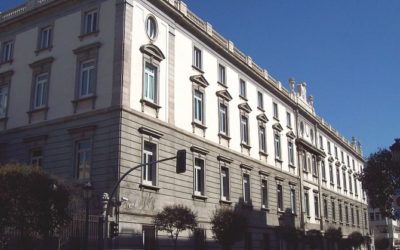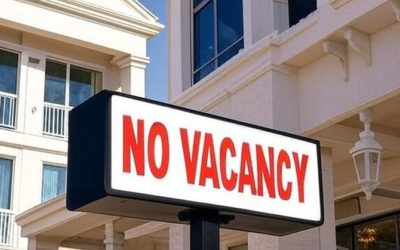CLC world fractional owners are being forced to give up their fractional properties in exchange for a completely different property. But what is the real reason behind these latest CLC manoeuvrings ?

Not an investment
Timeshare has long been considered an expensive and inefficient way to take holidays. Historically this was not the case. Before the advent of the internet, timeshare guaranteed high quality accommodation in exclusive resorts. Something frustrated holidaymakers were prepared to pay a lot of money for in the 80s and 90s.
Shared ownership appeared to offer the pride of full ownership, but without the associated expense of buying an apartment outright.

It is illegal to present timeshare as an investment, as the product loses pretty much every penny of its value from the moment it is sold.
Once the internet rendered timeshare’s perceived advantages obsolete, a new sales strategy was needed. Cue: The Fractional Timeshare.
Fractional subterfuge
“Fractionals,” unlike traditional timeshares, were sold as actual part ownership of a property. Buyers unconsciously associate property with rising value and assume that they will make money on the deal. Why wouldn’t they? After all, how often does property fail to rise in value?
In fact, because of the way they are contracted, fractional ownerships provide minimal improvements over the old style ‘right to rotational occupancy’ timeshares. The only real advantage was to unscrupulous sales people who could now (illegally) present the product as an investment. Either by inference, going close to the edge of the law, or by ignoring the law altogether and point-blank promising a financial return on the buyer’s original outlay.
Club la Costa embroiled
CLC World have been heavily pushing fractional memberships since 2011 as a way to upsell their member base. As of today inhouse experts at European Consumer Claims (ECC) estimate there are up to 35,000 CLC fractional owners who believe they will make a return on their outlay.

Experts working at ECC estimate that Club la Costa have earned well over £700 million though fractional ownership sales schemes. Their commission only sales staff have been ‘upgrading’ as many people as they could from regular memberships to fractionals by promising a better holiday experience and the lure of potential money back when the property is eventually surrendered.
Those people have fixed terms of ownership duration, after which the properties are contracted to be sold, and any profits divided among the owners.
Scandalous email
CLC fractional owners at the Costa del Sol Pueblo Marina complex have just received an alarming email from Club la Costa Member Services. The three page missive dictates that for vague ‘operational reasons’, whether they like it or not, their ownership is being transferred to an entirely different complex called Marina del Rey.

Never mind that those people bought into a complex that they may have actually liked.
CLC members primarily bought into fractional timeshare because it was presented as a way to shorten their membership term to 16 more years. Plus the likelihood of a financial return at the end of that timescale.
However the complex itself would have been a factor in their decision to ‘upgrade’ to the fractional ownership. For the sizeable outlay involved many buyers will agonise over the decor, the location (of both the complex itself and the apartment within the complex), the appearance and design of the development. Other important details like what time of day the apartment gets the most sun or whether they like the pool will factor into the decision.
Imagine carefully evaluating all of the criteria involved in the selection of a holiday property, and agreeing to the deal. You take the plunge and make the decision to buy.
Imagine you then later get an email telling you “sorry, we are swapping what you specifically chose for something else that we are choosing for you.”
To add insult to injury, CLC World have told the clients that their new ‘enforced’ property change comes with a mandatory increase in annual fees of £540. Clients are given a stark choice of either paying the extra £540 per year, or not paying the extra money now but having the deficit subtracted from any profit they would be entitled to when the apartment is sold.
CLC expert comment
“These people were already paying annual fees of around £1000 per year for their memberships,” explains Greg Wilson, CEO of ECC. “Now they have been hit with this increase to over £1500 a year, for something they had zero choice about. And for changing what they had bought to a totally different property which again, they had no choice about.
“They might like the new complex, they might hate it. The point is they had no agency in any aspect of this new property selection. It is not what they bought.

The move is viewed with cynicism by Wilson, an expert on CLC activity and history. “This appears to be a calculated strategy from Club la Costa,” he notes. “There is approximately nine years left on the fractional contract term for the Pueblo Marina memberships. CLC may be of the opinion that there will be a (rare) profit when the property is sold on.
“They will probably expect most people to choose ‘option two’ where they defer the extra £540 a year to when the property is sold.
“That way CLC can contact them at the time of sale and say :‘guess what, because you have been accruing a debt of £540 a year for the last nine years you now actually owe US money. But we have a deal for you: we can just cancel the agreement, and neither of us will owe the other anything.’
“That way CLC would get to keep all of the profits on the property sale.”
Problems with your fractional ownership?
If you own a fractional timeshare and feel treated unfairly in any way, get in touch with our team for advice on your options.
We can help.


